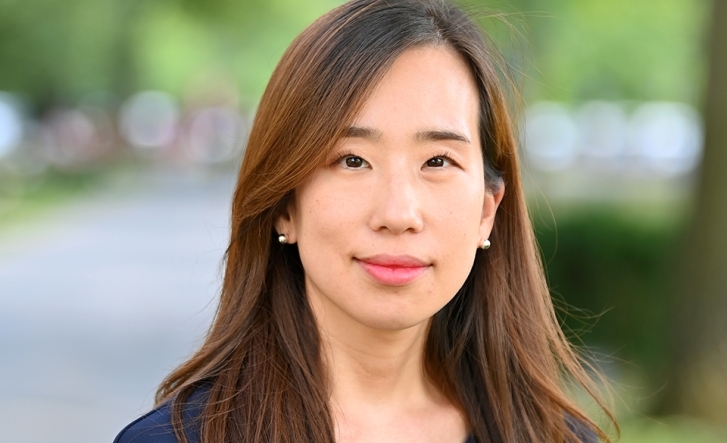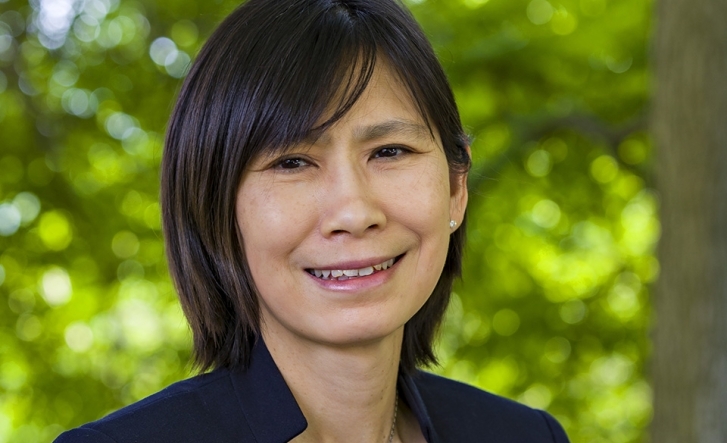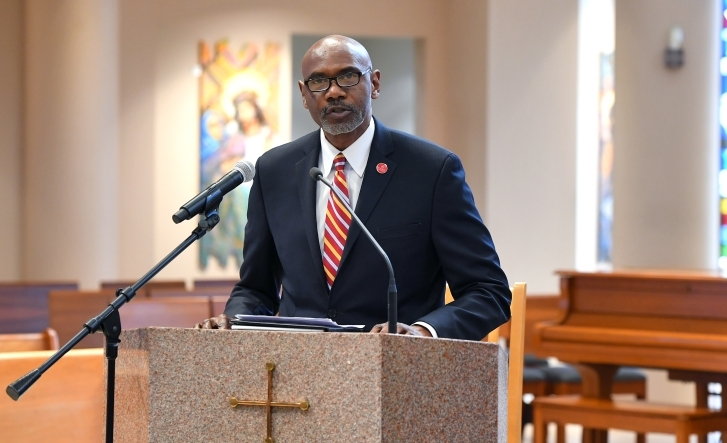Judith McVarish, Ph.D.
Education Professor Makes Math Fun

Education Professor Makes Math Fun
How do you inspire students by making education fun? The key, said Judith McVarish, Ph.D., Associate Professor and Chair of Curriculum and Instruction, is to spark their curiosity.
“I believe children would never develop a fear of math if we made it more exciting,” Dr. McVarish said. “This is the element that motivates students of every age.” She used this insight to develop In Addition, an after-school math program that has become one of The School of Education’s signature initiatives.
Dr. McVarish established In Addition at St. John’s when she came to the University in 2005. Since then, 20 to 28 Manhattan inner-city students in the third, fourth and fifth grades have participated annually.
In Addition’s emphasis is on asking questions and solving problems — rather than following a traditional approach that relies on drills and tests. This has generated enthusiastic student responses and consistently positive results.
“Her visionary combination of activity-based learning, monthly meetings with parents and weekend student/family/faculty retreats has helped put St. John’s into the forefront of after-school programming,” said Jerrold Ross, Ph.D., Dean of The School of Education.
Dr. McVarish traces her commitment to making math fun and accessible to a formative experience she had in the sixth grade. “My teacher told me I was making ‘silly mistakes,’ so I began to lose confidence in my ability to work with numbers.” It was only later in life that she realized how widespread this feeling is.
When Dr. McVarish decided to pursue a career in education, one of her goals was to help students overcome their fear of math. She achieved this by providing a supportive learning environment, encouraging students to explore, to question and, above all, to persevere.
A student in Dr. McVarish’s course on teaching elementary school math, Victoria Romero ’13Ed benefited from this approach. “I was lucky to be in her class,” said Romero. “Dr. McVarish was a game changer. She helped me conquer my fear of numbers — which I developed in grade school — and master a discipline I needed to learn if I wanted to be an elementary school teacher.”
It was her love of teaching that first drew Dr. McVarish to St. John’s. “I was impressed by the high value placed on teaching [here],” she said. She was also attracted by the University’s service orientation, finding it compelling that service is “not just tolerated here, but respected, honored and expected.”
Dr. McVarish also participates in the University’s Institute for Catholic Schools. As part of its “Project TIE: Training Innovative Teachers,” she helps to improve elementary school teachers’ effectiveness in math and English language arts. And through the Institute’s Curriculum Leadership Teams (CLTs), Dr. McVarish helps Catholic schools implement New York State’s new Common Core initiative.
Assisting schools throughout the city, Dr. McVarish said, is an important aim of St. John’s University and The School of Education. “Our faculty are expected to go out into the field and work in community schools,” she said.
At the same time, Dr. McVarish contributes as a writer and researcher. She is the author of a well-reviewed textbook, Where’s the Wonder in Elementary Math? Encouraging Mathematical Reasoning in the Classroom (2007), as well as a soon-to-be-published study on faculty self-assessment techniques in higher education.
Her contributions also extend to The School of Education’s recent decision to start presenting Parent Involvement Awards at Commencement. “Parents and other caregivers play such an important role in the education process,” she noted. “It’s gratifying to see the University honor them with an official tribute.”
For Dr. McVarish, St. John’s has turned out to be the perfect springboard to prepare inspirational educators. “Our future depends on having educators who will be able to teach students to think critically,” she said. “It’s important to be able to pose questions, instead of just answering them passively.”



